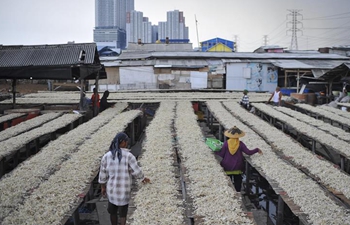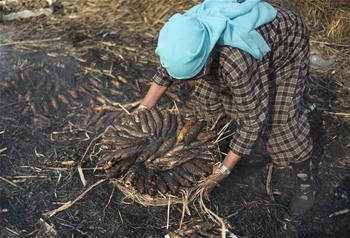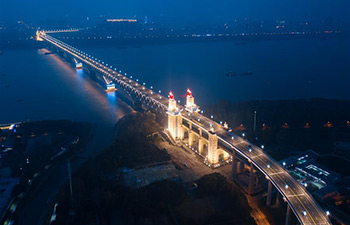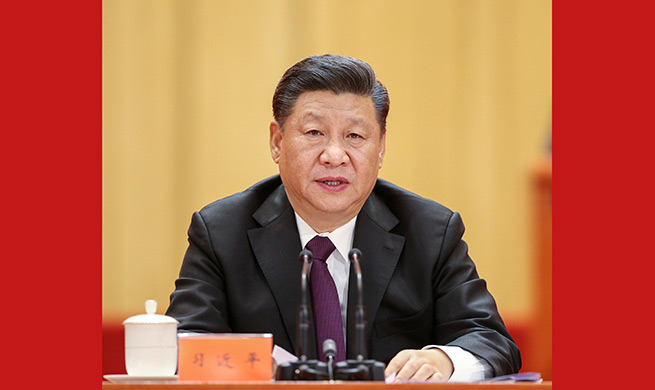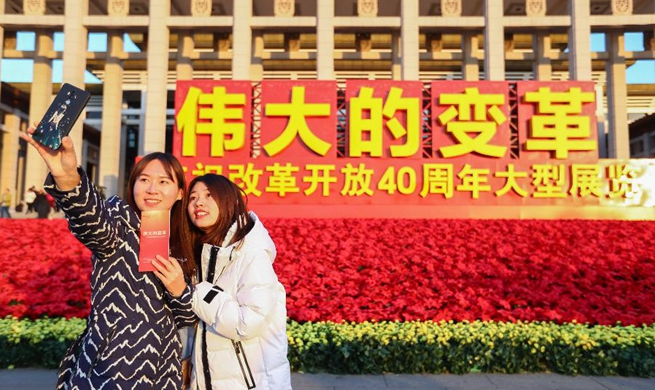by Victoria Arguello
BUENOS AIRES, Dec. 19 (Xinhua) -- Argentina has managed to stabilize its economy towards the end of a volatile year, according to figures from the National Statistics and Census Institute (INDEC).
In December, the peso's steep slide against the U.S. dollar slowed, as did the inflation that once risked running out of control.
Measures adopted by the authorities, including monetary policies by the central bank, succeeded in preventing the peso from trading at above 40 pesos to the dollar and reducing the inflation rate by two percentage points.
Still, the accumulated inflation so far this year was at 43.9 percent, with year-on-year inflation at 48.5 percent. Financial analysts surveyed by the bank said inflation could close the year at 47.5 percent.
Last year, Argentina's inflation rate was 24.8 percent, the second highest in Latin America after Venezuela, but it skyrocketed in April to May after the peso devalued by more than 100 percent.
The peso's fall coupled with the worst drought in five decades, which damaged crops, especially soy, and led to losses of some 8 billion U.S. dollars, led economists to project a 2.4-percent drop in gross domestic product (GDP) for 2018.
In less than 10 months, the central bank saw two chiefs come and go.
By mid-2018, the government began negotiations with the International Monetary Fund (IMF) that led to one of the biggest bailouts in IMF's history, with Argentina securing a 50-billion-U.S. dollar loan.
Finance Minister Nicolas Dujovne, who led the talks with the IMF, said it was a "preventive" move given the country's high public deficit and external factors such as successive interest rate hikes by the U.S. Federal Reserve.
Argentina, said Dujovne, was "committed" to achieving fiscal balance, in keeping with the agreement reached with the IMF, which set a target of zero deficit by 2020.
However, the deal failed to calm market jitters about Argentina's economy, sparking new devaluations in August to September and the resignation of then central bank chief Luis Caputo.
Argentina asked the IMF to renegotiate its deal to speed up the disbursement of the loan. The two sides announced a new deal at the end of September that raised the bailout to more than 56 billion U.S. dollars.
Analysts say Argentina is expected to have access to at least 22.8 billion U.S. dollars of IMF funds in 2019, which will be enough to cover more than half of its credit needs in the year, which is also an election year.
However, economists, such as former President of state-owned Banco Nacion Carlos Melconian, say: "There is no chance of the economy being fully reactivated for the elections" due to "high public spending."
The troubled economy has also exacerbated the poverty rate, which is now at 33.6 percent, the highest in a decade, according to a study by the Argentine Catholic University.
"I hope next year ... is calmer," Dujovne said in a year-end message to the media.






